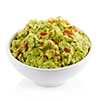Sign In Chef

By using our free meal planner (and the rest of spoonacular.com) you have to agree that you and only you are responsible for anything that happens to you because of something you have read on this site or have bought/cooked/eaten because of this site. After all, the only person who controls what you put in your mouth is you, right?
Spoonacular is a recipe search engine that sources recipes from across the web. We do our best to find recipes suitable for many diets — whether vegetarian, vegan, gluten free, dairy free, etc. — but we cannot guarantee that a recipe's ingredients are safe for your diet. Always read ingredient lists from the original source (follow the link from the "Instructions" field) in case an ingredient has been incorrectly extracted from the original source or has been labeled incorrectly in any way. Moreover, it is important that you always read the labels on every product you buy to see if the product could cause an allergic reaction or if it conflicts with your personal or religious beliefs. If you are still not sure after reading the label, contact the manufacturer.
We also attempt to estimate the cost and calculate the nutritional information for the recipes found on our site. Again, we cannot guarantee the accuracy of this information. Additionally, our nutrition visualizer that suggests that you limit sodium, sugar, etc., and get enough protein, vitamins, and minerals is not intended as medical advice. Similarly, our health tips are based on articles we have read from various sources across the web, and are not based on any medical training. The team behind spoonacular does not possess any medical qualifications and the information may be found to be incorrect or out of date based on future research. If you need help planning your diet or determining which foods (and recipes) are safe for you, contact a registered dietitian, allergist, or another medical professional.
Spoonacular is not responsible for any adverse effects or damages that occur because of your use of the website or any information it provides (e.g. after cooking/consuming a recipe on spoonacular.com or on any of the sites we link to, after reading information from articles or shared via social media, etc.)
×$2.83 per serving

13 likes

Ready in 45 minutes

Spoonacular Score: 76%
Chicken Verde Enchilada Casserole requires approximately 45 minutes from start to finish. For $2.83 per serving, this recipe covers 27% of your daily requirements of vitamins and minerals. This recipe serves 6. One portion of this dish contains around 35g of protein, 27g of fat, and a total of 537 calories. It is a rather cheap recipe for fans of Mexican food. This recipe from Foodista has 13 fans. If you have guacamole, green onions, olive oil, and a few other ingredients on hand, you can make it. Autumn will be even more special with this recipe. It works well as a main course. It is a good option if you're following a gluten free diet. All things considered, we decided this recipe deserves a spoonacular score of 58%. This score is solid. Similar recipes include Chicken Verde Enchilada Casserole, Verde Chicken Enchilada Casserole, and Chicken Enchilada Verde Dip.
Mexican can be paired with Pinot Noir, Riesling, and Sparkling rosé. Acidic white wines like riesling or low-tannin reds like pinot noir can work well with Mexican dishes. Sparkling rosé is a safe pairing too. You could try Skater Girl Limited Edition Pinot Noir. Reviewers quite like it with a 5 out of 5 star rating and a price of about 30 dollars per bottle.
 Aromas of cherry pie, pomegranate, and lychee fruit are followed by vibrant flavors of strawberry jam with hints of whipped cream, clove and cinnamon spice. This is a pretty wine with bright acid and a food-friendly structure.
Aromas of cherry pie, pomegranate, and lychee fruit are followed by vibrant flavors of strawberry jam with hints of whipped cream, clove and cinnamon spice. This is a pretty wine with bright acid and a food-friendly structure.
» Get this wine on Amazon.com




































Read the detailed instructions on Foodista.com – The Cooking Encyclopedia Everyone Can Edit